“It is a mistake for any artist to think that their personal world is interesting. It is not. What is interesting is to use the personal to arrive at the universal.”
The above is my latest manifesto, written last week. Artists often write statements and manifestos as a way of clarifying their intention for themselves, and explaining it to others. These change and evolve over time.
Below is what I wrote a year ago:
“Photographers need to learn to see deeply, to be receptive of what is there but not quite visible. We choose our place, and we choose our moment, and we make an image. We owe it to that image to be as sure as we can be about what we were doing there. And it’s not about claiming a trophy shot of a snow covered peak, or photoshopping a coastline at sunset until the colour hurts your eyes. It’s about knowing what it is that you’re looking at. It’s about respect for the process, and respect for the place where you’re making the image. It’s about trying to look out, to seek that little bit of the sublime that we can never really find, but that we have to keep looking for, because we know it’s there and we care about it and we want to be able to show it to others.”
So why share this?
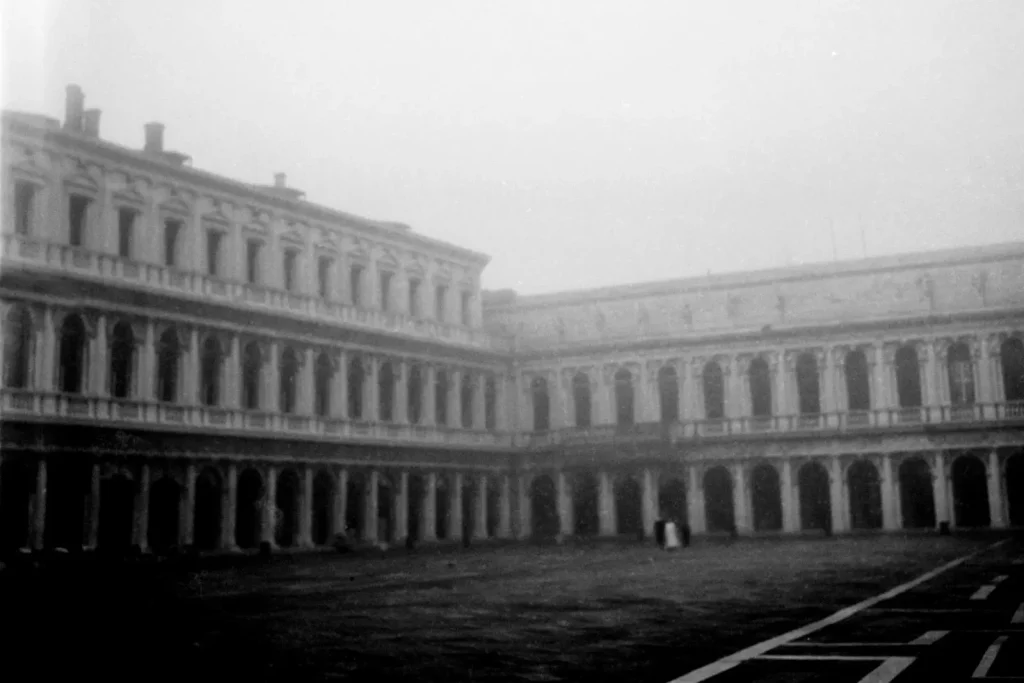
Well, it’s partly in an effort to help others. We all learn from what others are doing, and it’s good to put it out there.
It’s also selfish. It will help my work if I take the time to distill my thoughts in to a form that is readable by others.
This form of clarification is also very useful in allowing inspiration to come. If you have taken the time to think about why it is you want to make photos, and what you want those photos to be about, the process becomes easier.
I’m writing this also in response to a few things I’ve been reading on the sites I follow about photographers who feel they lack inspiration. How they’re feeling down about it and looking for the new camera, lens or film stock that will help them out.
This can be futile and depressing, because it won’t work. It might work for a little while, but ultimately it’s a road to nowhere.
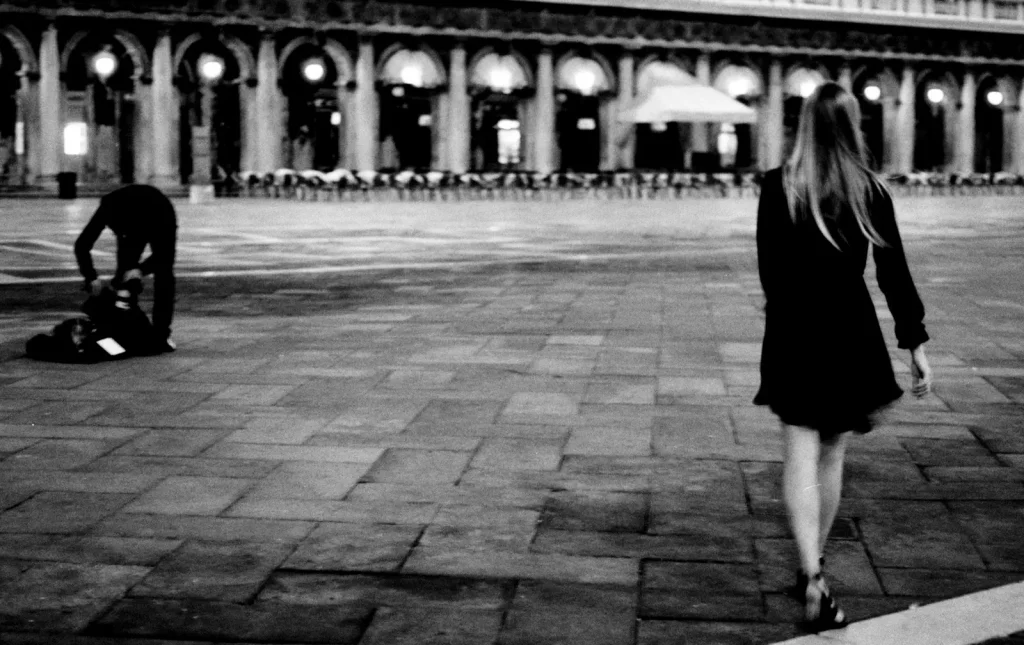
Don’t get me wrong: I have way too many cameras. My office is described as a “camera petting zoo” by my daughter. I love cameras and I like buying them and playing with them. But I do not believe this is in any way related to whether I can make decent work out of it all.
I have two or three cameras at any time that I know and understand, and a couple of standard film stocks to use.
You do need to have the technical facility to realise your vision, but seriously folks, taking a photo is not that hard.
Where most of the work needs to be done is in refining your intent and vision, working out what you want to do, and then finding a way to do it.
Inspiration?
Don’t expect it.
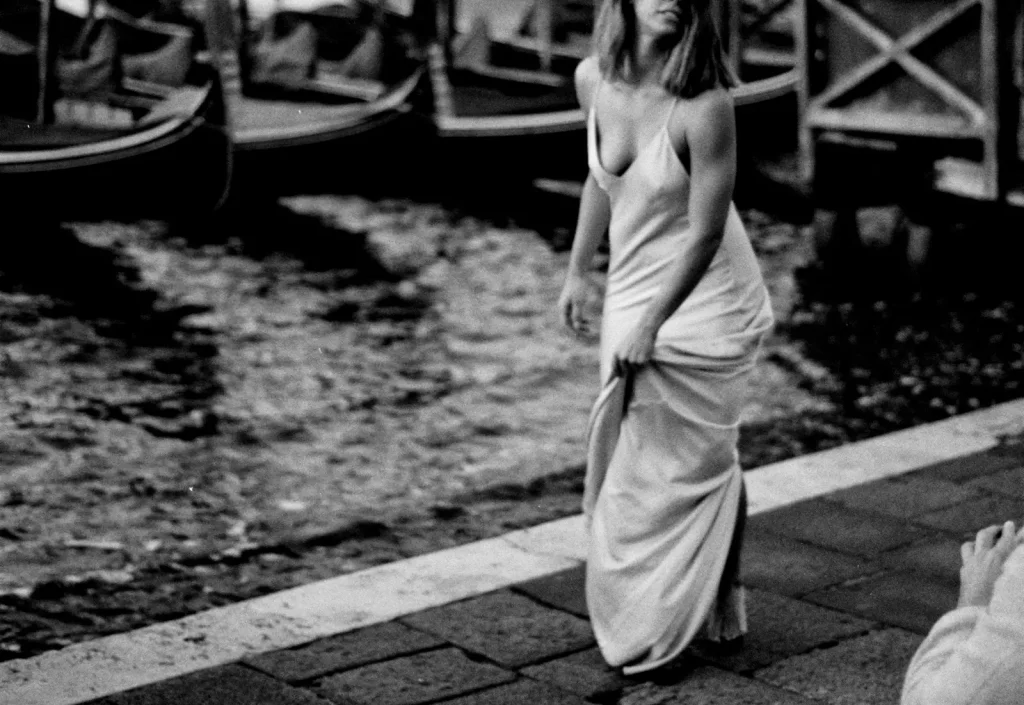
This is worth repeating. DO NOT EXPECT TO BE INSPIRED.
It seems that people think if they grab a Leica and walk around the block they’ll magically become Henri Cartier-Bresson. Ain’t gonna happen. What will happen is you’ll get a few dud shots that some kind people on Instie or fb will say are great.
Inspiration is great and wonderful, but it’s RARE. That’s right. It won’t come every day. Your mileage may vary, but I’m happy to be inspired three or four times a year.
When you’re not inspired there’s still lots you can do. That’s when you play with gear, work on technique. It’s when you review your old work and look for something you’ve missed.
There is no need to make new work all the time.
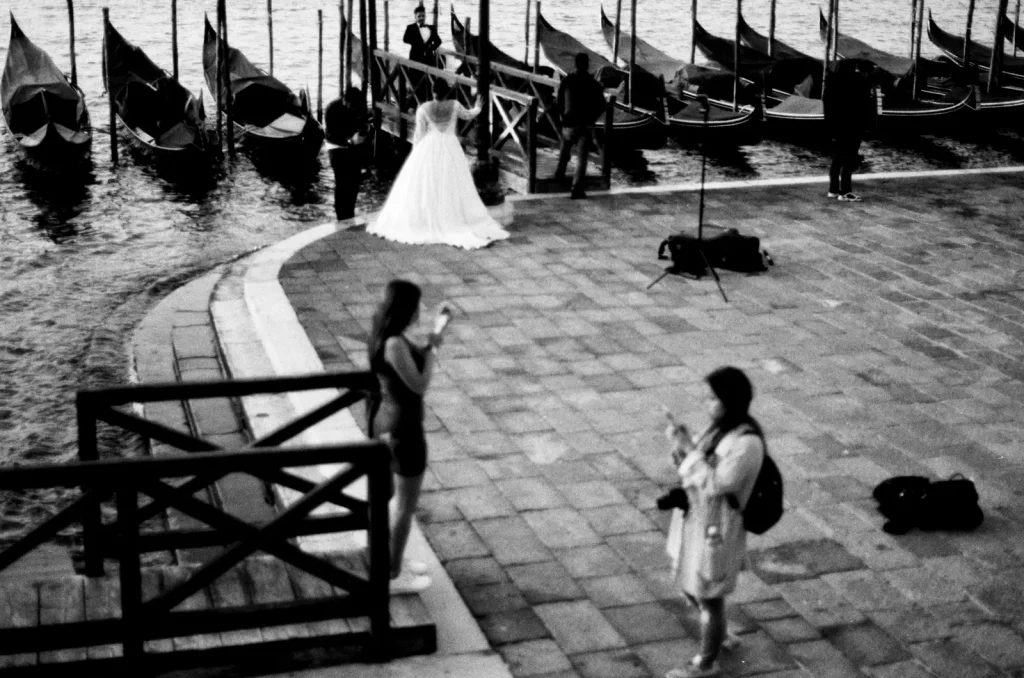
Case in point. I’ve just got back from two weeks in Venice where I shot two projects. I shot four rolls of 135 and four rolls of 120. I’ve got enough out of that to keep me working for a couple of years at least. Admittedly it’s a bit easier for me because I paint as well, and I’ll be mucking about making books and writing stories, as well as working on new techniques of overpainting the photos. But the principle is there.
It’s okay not to shoot. Why shoot if you’re not inspired? Or if you do shoot, don’t expect it to be great. It won’t be great – and that’s no problem.
If I grabbed a camera today and tried to force something to happen I would come back with nothing but shit, so I won’t bother. Now, I must make the distinction that this is different from commercial photography. In a way commercial is easier, because the client has given you the brief and you know what to do. The satisfaction I get from that is from problem solving and using my skills to do a job successfully.
So: back to inspiration. Here’s the how to:
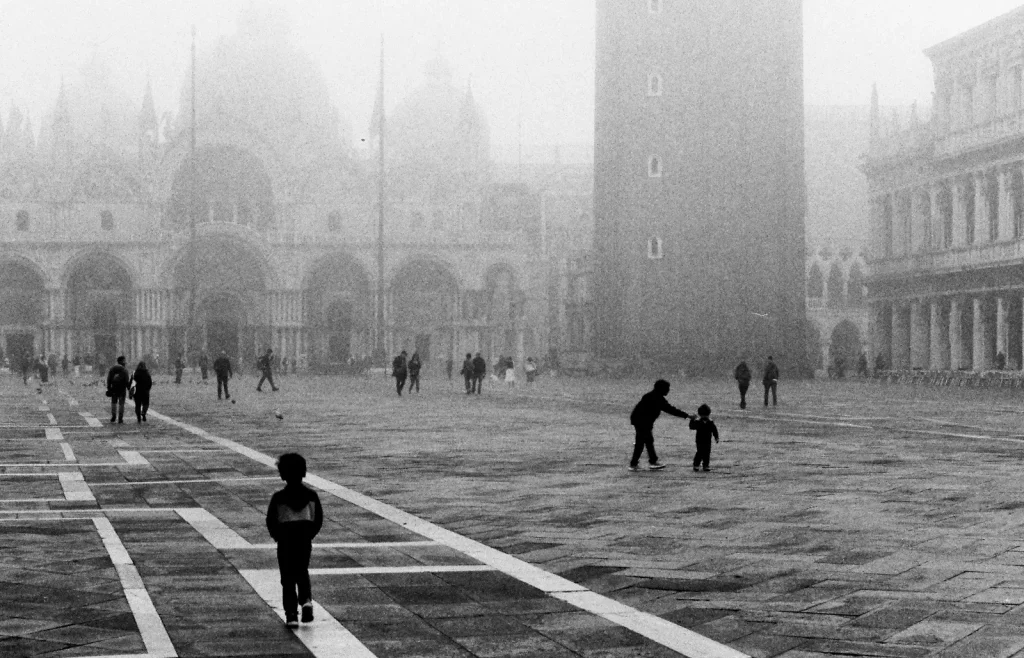
I’ll use my recent Venice trip as an example. For this example I’ll only refer to the second project, which I have called Dreaming in Red. I shot it on two rolls of HP5. (These are the shots in this story of course)
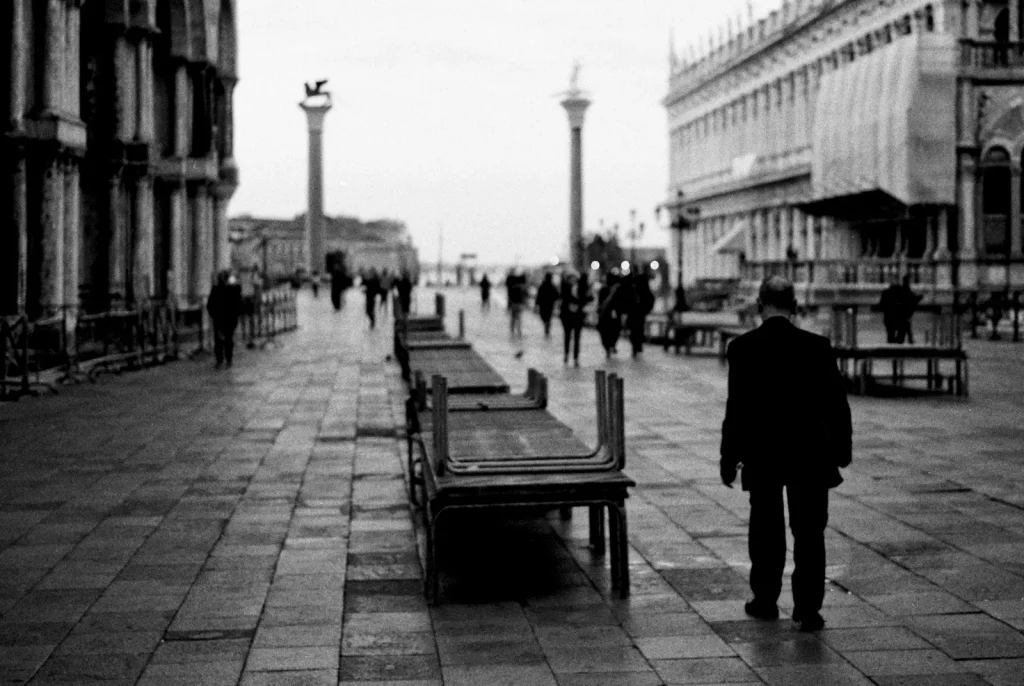
Before I’d even left the country I knew what I wanted to do. I had one idea that I was confident in, and a couple of others that I thought may or may not work.
So. What is your vision? Write it down.
OK – mine is to make something universal from the personal. There. Easy.
Now, more specifically with this work, I’m looking at themes of memory and loss. I’m trying to create a feeling of vague unease and longing. OK – all good so far.
OK then, why choose Venice?
- I love it to death. It’s my favourite city and the most beautiful city on earth.
- I’ve paid my dues there. I’ve been there for three months in eight trips over 30 years. I feel I have the right to photograph there. (There are only a few places I feel I have this right)
- It’s universal – it speaks to everyone.
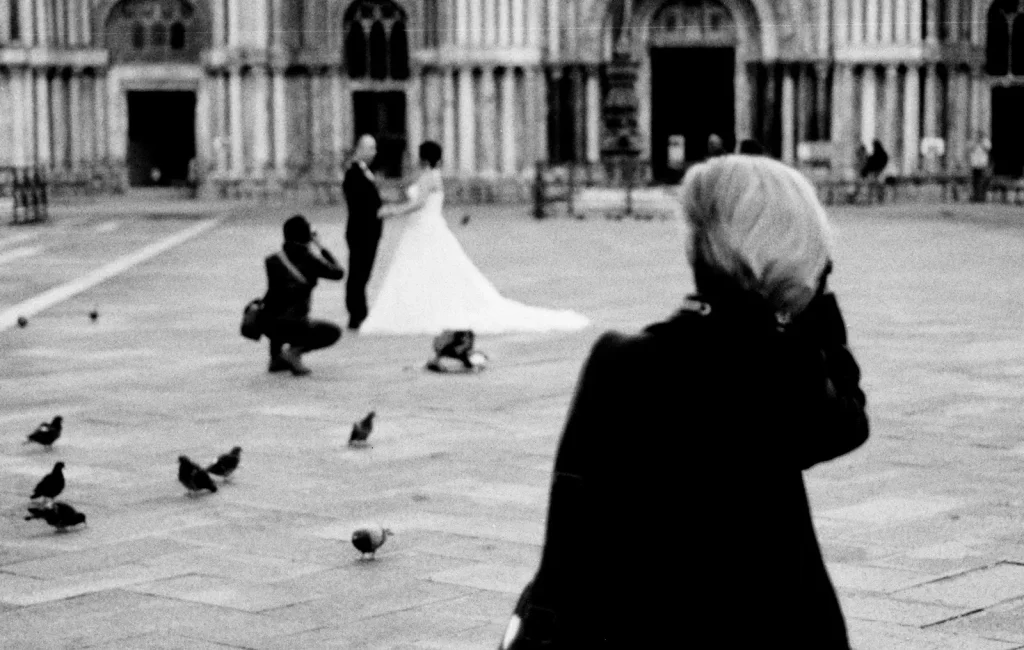
So the inspiration. Was I inspired? Yes. I got lucky. But as well as having a plan, I did what I could to put the odds in my favour.
- I gave myself two weeks to work in.
- I chose a time of year where I thought the weather would be what I wanted.
- I got up in the dark every day for two weeks and walked down to the square with my cameras.
Technically, I knew what my lenses would give me and what the film would give me. I knew how to use my gear. That’s about all really. After that it’s just about staying receptive to what’s there and putting in the work.
And lastly, I used my experience.
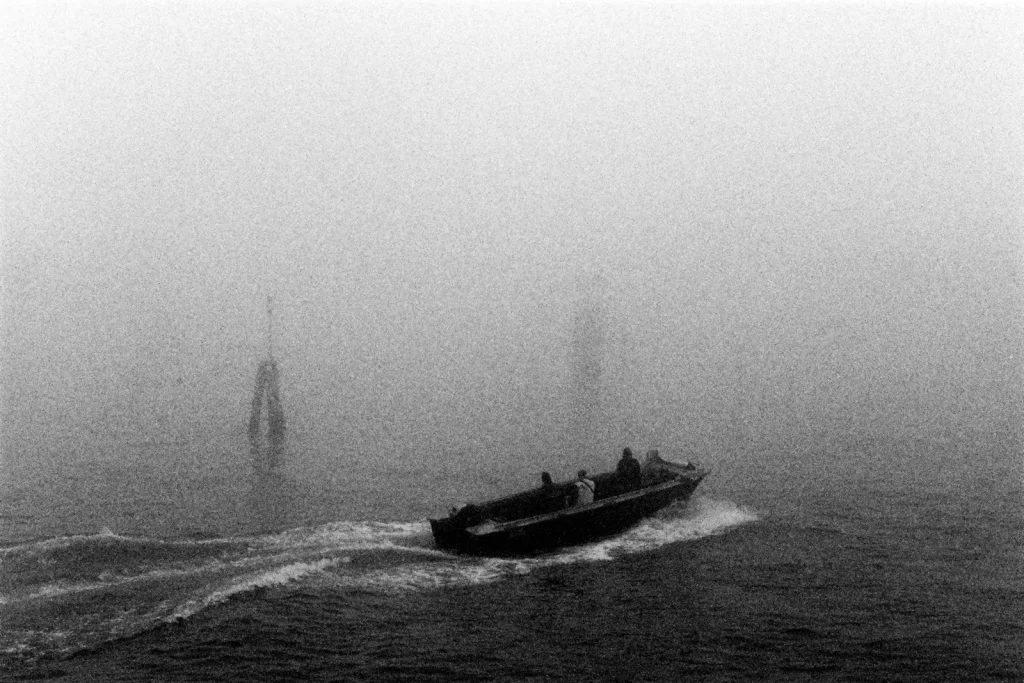
I used what I had learned in the past: Back in 1994 I had signed up for a show with a gallery and set off to Venice to do my paintings. I had one month there. After two weeks I had nothing. I had been trying to force it and it didn’t work. I thought “Oh shit, this could go badly.”
I relaxed, the inspiration came and I made a painting a day for the last two weeks. You can’t force it. It might work out, it might not. So don’t sweat it, just give yourself the best chance and enjoy it when it happens.
Share this post:
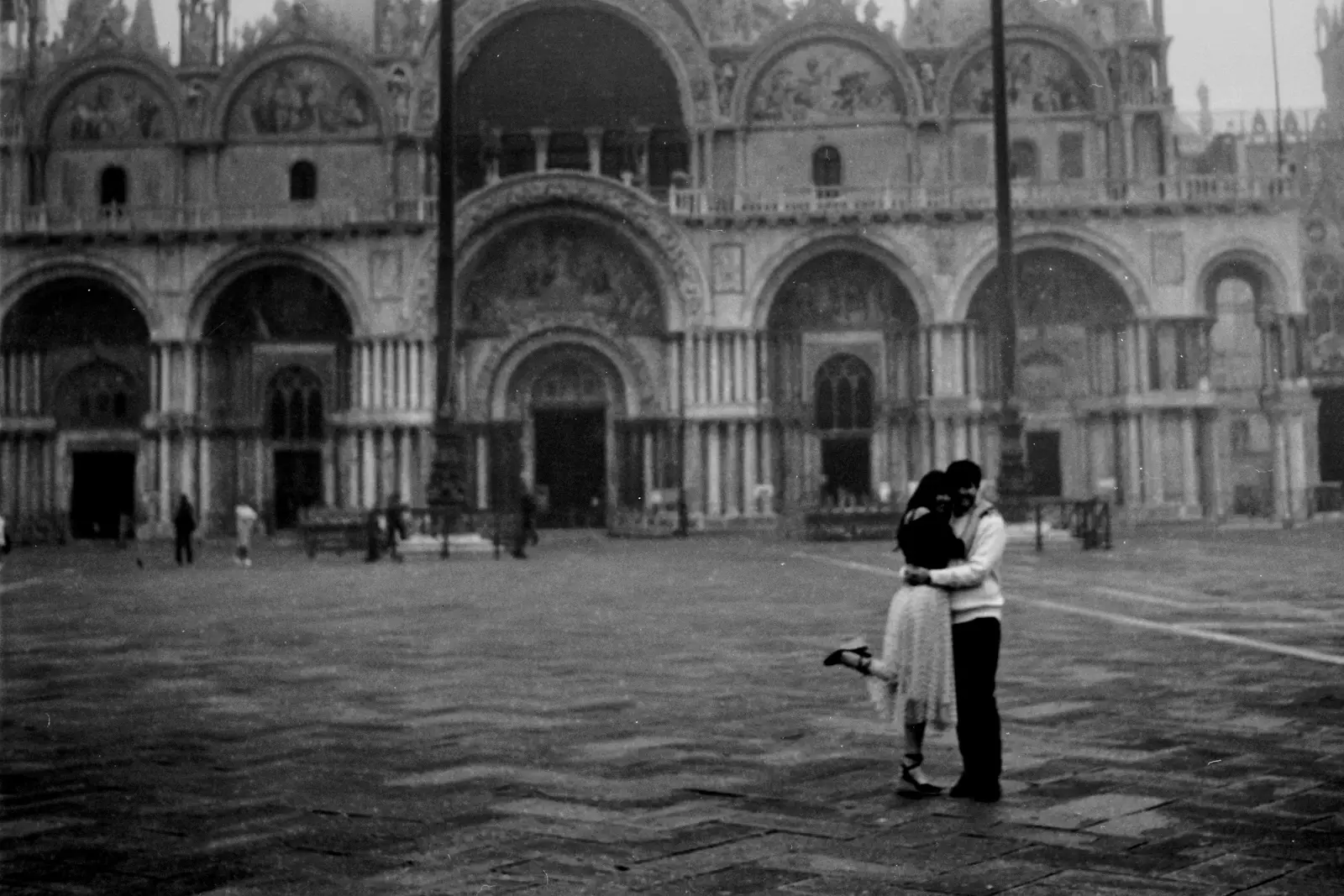
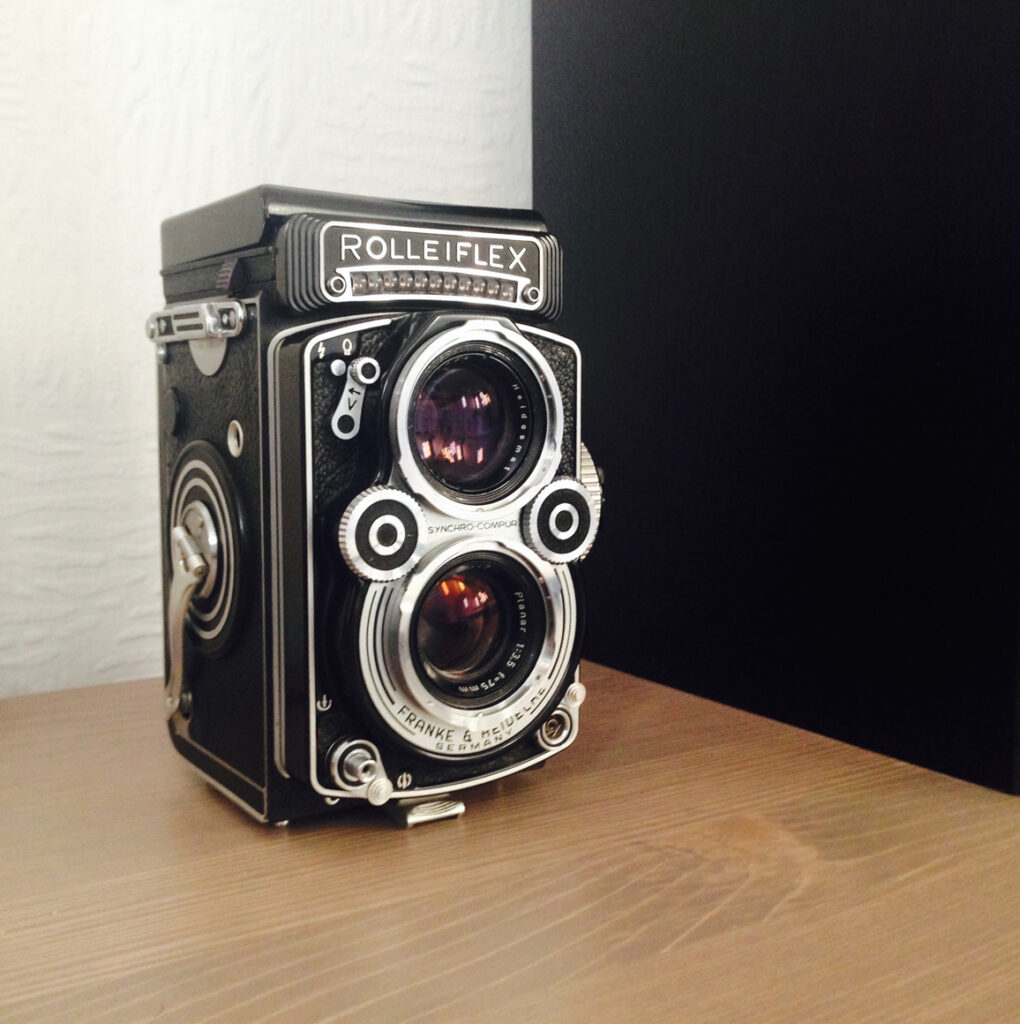
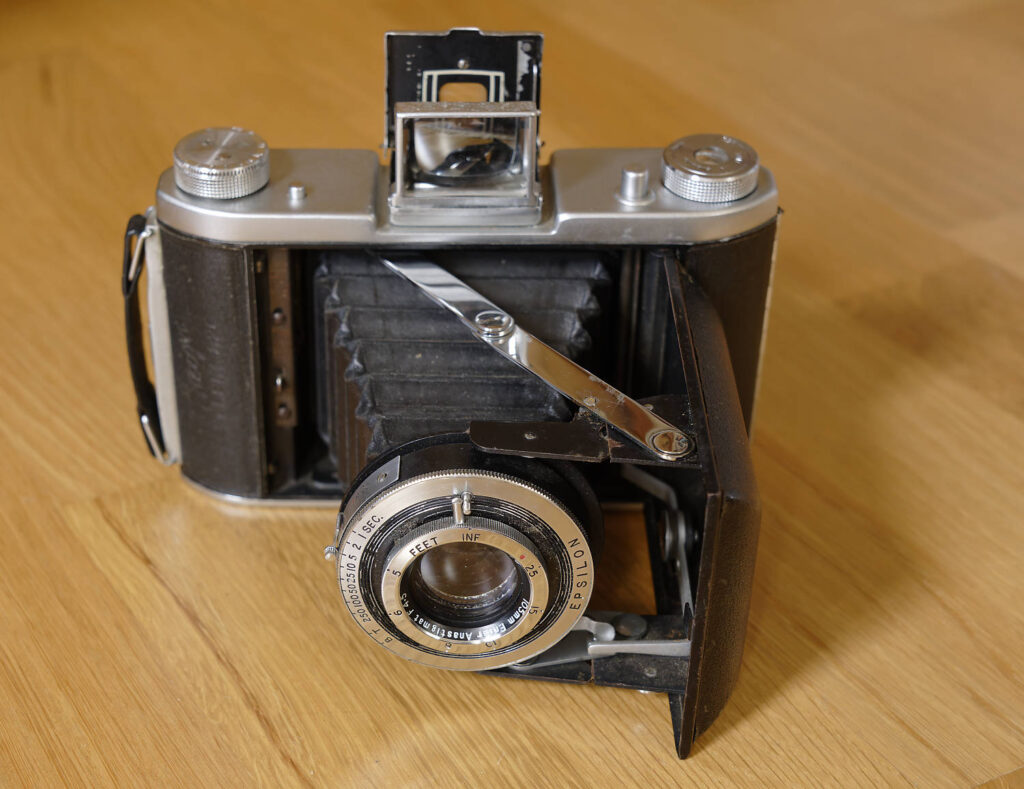
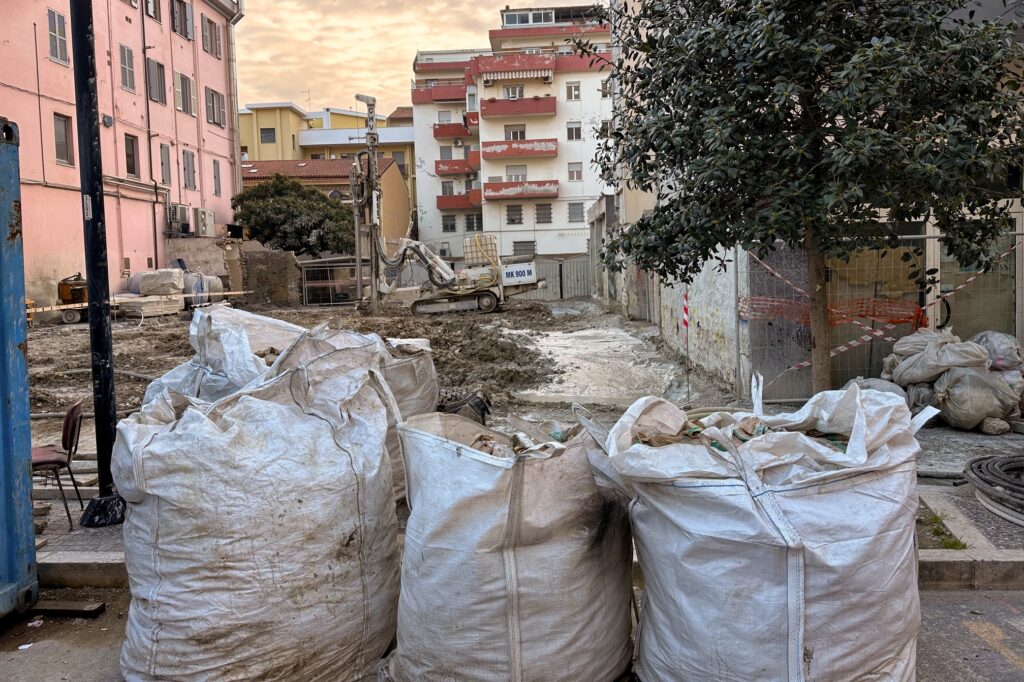
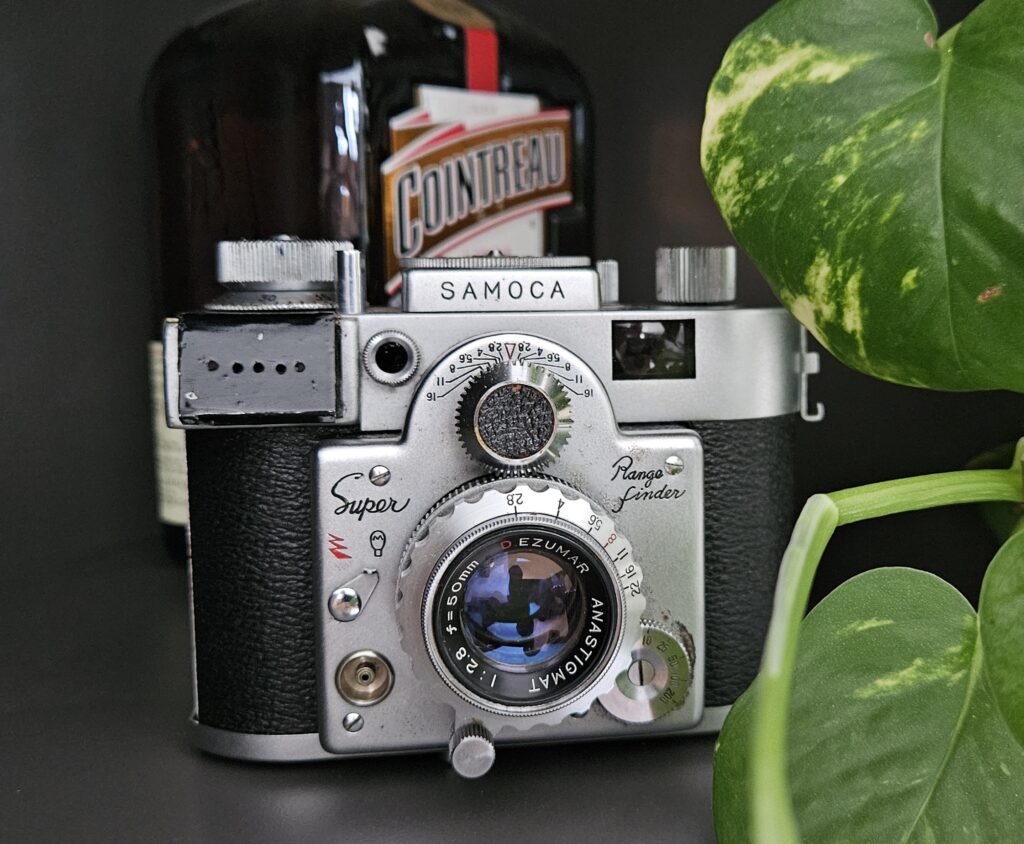




Comments
Michael D Carey on On Finding inspiration (Don’t hold your breath) – By David Hume
Comment posted: 02/01/2020
thorsten on On Finding inspiration (Don’t hold your breath) – By David Hume
Comment posted: 02/01/2020
A happy new year, everybody!
Steve Wales on On Finding inspiration (Don’t hold your breath) – By David Hume
Comment posted: 02/01/2020
Like the photos very much. They certainly inspire me.
Daniel Sigg on On Finding inspiration (Don’t hold your breath) – By David Hume
Comment posted: 02/01/2020
I also agree that one can not expect inspiration and one can not force it. For me personally, traveling or just going to different/new locations (or just different/new experiences) can help me with inspiration; and as you said, having a vision and/or some ideas about what to accomplish visually in those locations (or with those experiences) can help as well.
Thanks again and happy new year!
Kate Johnson on On Finding inspiration (Don’t hold your breath) – By David Hume
Comment posted: 02/01/2020
eric on On Finding inspiration (Don’t hold your breath) – By David Hume
Comment posted: 03/01/2020
Charles Higham on On Finding inspiration (Don’t hold your breath) – By David Hume
Comment posted: 03/01/2020
Tobias Eriksson on On Finding inspiration (Don’t hold your breath) – By David Hume
Comment posted: 04/01/2020
Dave Shrewsbury on On Finding inspiration (Don’t hold your breath) – By David Hume
Comment posted: 08/01/2020